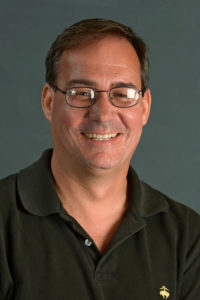One of the most important things you learn as an adult is how to create and set a budget. Most people learn while they’re attending college and need to start keeping an eye on their monthly/yearly costs are after factoring loans and financial aid. Everyone first thinks of paying for tuition, classes and textbooks, but there are other parts of starting college that gets factored into the total cost. We listed purchases you should expect to make once you step on campus.
Housing
Whether you’re living in an apartment, on campus or commuting to school, you’ll need to look at the cost of living.
If you’re in an apartment, you’ll need to invest more in your living situation. With roommates, you’ll be able to cut down on costs but will still need to invest in other things like cleaning products, furniture, utilities and of course, rent.
In the case that you’ve chosen to go to with student housing/dormitories, you will have to pay a semesterly or quarterly fee for living on campus. This cost may be covered by financial aid, but you’ll want to consider the extras that go along with living away from home. You’ll also need to provide your own sheets, towels and hygiene products. And in some cases, people invest in their own mini-fridges.
If you’re living at home with your family, you’re not alone. In the United States, one in three millennials lives at home. The costs that need to be considered is transportation to and from school. Whether you’re driving or taking public transportation, the cost may be cheaper than living on campus, but passes, mileage and parking costs can add up.
Supplies
Textbooks are by no means cheap, costing college students an average of $1200 a year. But what you also have to keep in mind that there are the other supplies and resources you need in order to study and succeed. You’ll need to have a reliable laptop, a scientific calculator and invest in a good portable charger. For certain programs, like nursing or allied health professions, you may have to buy stethoscopes and scrubs.
Snacks
You need healthy snacks to keep energized and focused during classes, especially for those dreaded 8:00 a.m. classes. If you live on campus or on a nearby apartment, the costs add up between buying groceries, going to the school cafeteria and ordering out. Even if you’re commuting from home, you still need to eat between classes! Your best bet is to pack your own snacks to avoid overpriced treats from nearby convenience stores.
Fun
You’re in school to study, but your college education is more than writing essays and taking tests. It’s also about the experiences you have and the connections you make with your peers. If you live in the library or in your room, you’re bound to get burnt out or go stir crazy. The way to prevent this is to put aside some money to go out during the weekend and have some fun. Order some pizza with friends, go camping for the weekend or see a movie. Even the most empty towns and cities have something for you to do. Make sure to take of yourself so that you can keep motivated and energized for the week ahead.
Want to learn more tips on how to cut costs and save money for college? Check out our Paying for College articles here.
The post Did You Budget This into Your Overall College Cost? appeared first on ExploreHealthCareers.org.



 ExploreHealthCareers.org (EHC): Can you tell me more about the Center for Innovation and Research on Veterans and Military Families?
ExploreHealthCareers.org (EHC): Can you tell me more about the Center for Innovation and Research on Veterans and Military Families?
 ExploreHealthCareers.org (EHC): How long had you been in the business profession before you decided to go into
ExploreHealthCareers.org (EHC): How long had you been in the business profession before you decided to go into 









